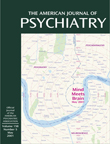Creating a Peaceful School Learning Environment: A Controlled Study of an Elementary School Intervention to Reduce Violence
Abstract
OBJECTIVE: The impact of a manual-based antiviolence program on the learning climate in an elementary school over 4 years was compared with the outcome in a control school. METHOD: The two schools were matched for demographic characteristics. The intervention in the experimental school was based on zero tolerance for bullying; the control school received only regular psychiatric consultation. Disciplinary and academic achievement data were collected in both schools. RESULTS: The experimental school showed significant reductions in discipline referrals and increases in scores on standardized academic achievement measures. CONCLUSIONS: A low-cost antiviolence intervention that does not focus on individual pathology or interfere with the educational process may improve the learning environment in elementary schools.



